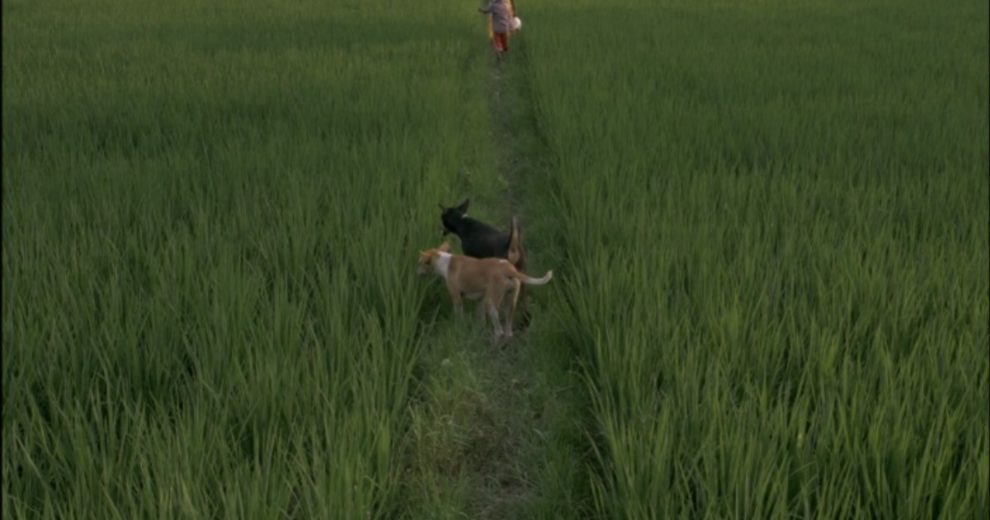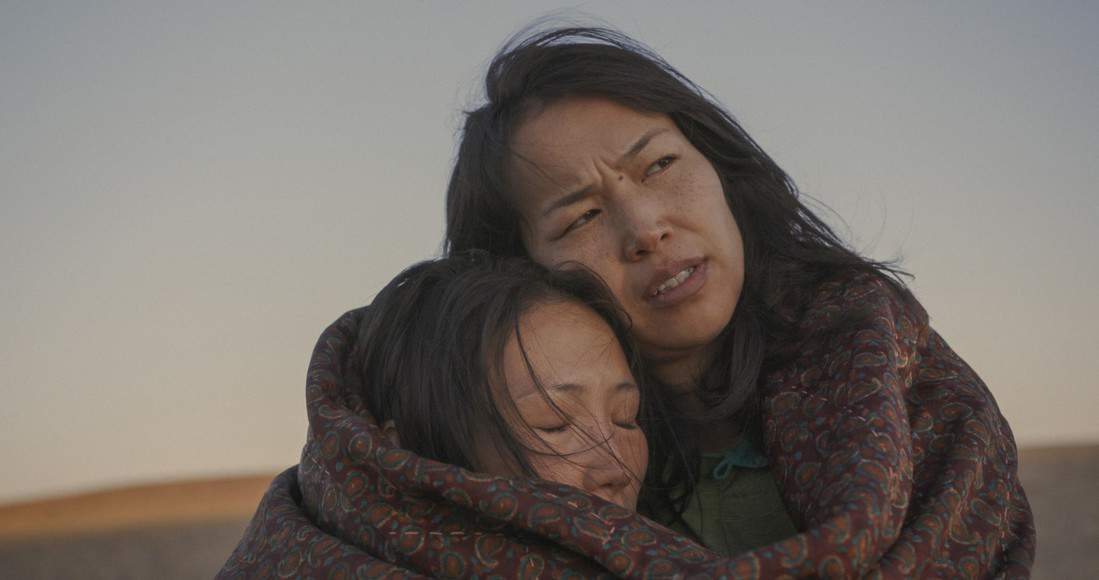The circumstances for the lives of orphans, and particularly those of minorities, have always been rather dire, but the pandemic seems to have ended even their slightest hope to survive. Seemonta Halder presents this message in his 18-minute short, through a subtle but also pointed and quite pragmatic fashion.
The story revolves around three siblings, who seem to be surving on their own, and takes place during three days. The three of them carry for a sick elderly man and his household, who gives them twenty rupees everyday for their help. They use the money to buy salted rice from the local store, but the owner there does not want anything to do with them, strictly avoiding even to touch them. She takes their money though, which, as time passes, become less and less, as inflation raises prices. If that was not enough, in their way back and forth from the tiny shack built on the foot of a solitary tree standing amidst a field they live, they get bullied by other children, in an event cementing the fact that they have been deemed pariahs.
The Elder sister takes care of her younger siblings in the absence of their parents who are long gone. The little brother occasionally dreams of their mother working on the paddy fields while they head towards her. holding the packet of “Salted Rice” calling out to her. The three also scavenge trees for fruit, and in general, survive by the mercy of Mother Nature. Even this meager life, however, seems to be coming to an end, as the pandemic changes priorities, and the factories and concrete devour the fields.
Seemonta Halder directs a rather bleak film, which, quite eloquently, shows that the changes brought by Covid, but also from greed and the constant expansion of urban settings, are having a rather dire toll on the “lower levels” of society, who find themselves essentially with no way to continue living, as things that could be got for free (from nature) or at least cheaply, are gradually disappearing. The fact that the children seem to know the fact deep down, and have even succumbed to their fate is even worse in this case, with Halder's gaze being rather harsh, but also realistic in its presentation, with the zoom-ins in the eyes of the kids being particularly impactful.
In general, the cinematography by Sandeepan Nath is one of the best aspects of the movie, with the 4:3 ratio, the rather well-shot night scenes, the ominousness of the factory chimneys, and the long shots of the fields being particularly pleasant to the eye while also communicating the comments he wanted to make, thus becoming an integral part of the narrative. The editing adds a sense of disorientation that also works well here, while at just over 18 minutes, the movie does not overextend its welcome in any way, neither seems forced to end prematurely.
“Grey Solar Game” is an excellent short, quite well-shot and eloquent in its comments, and in general, a true pleasure to watch.

















